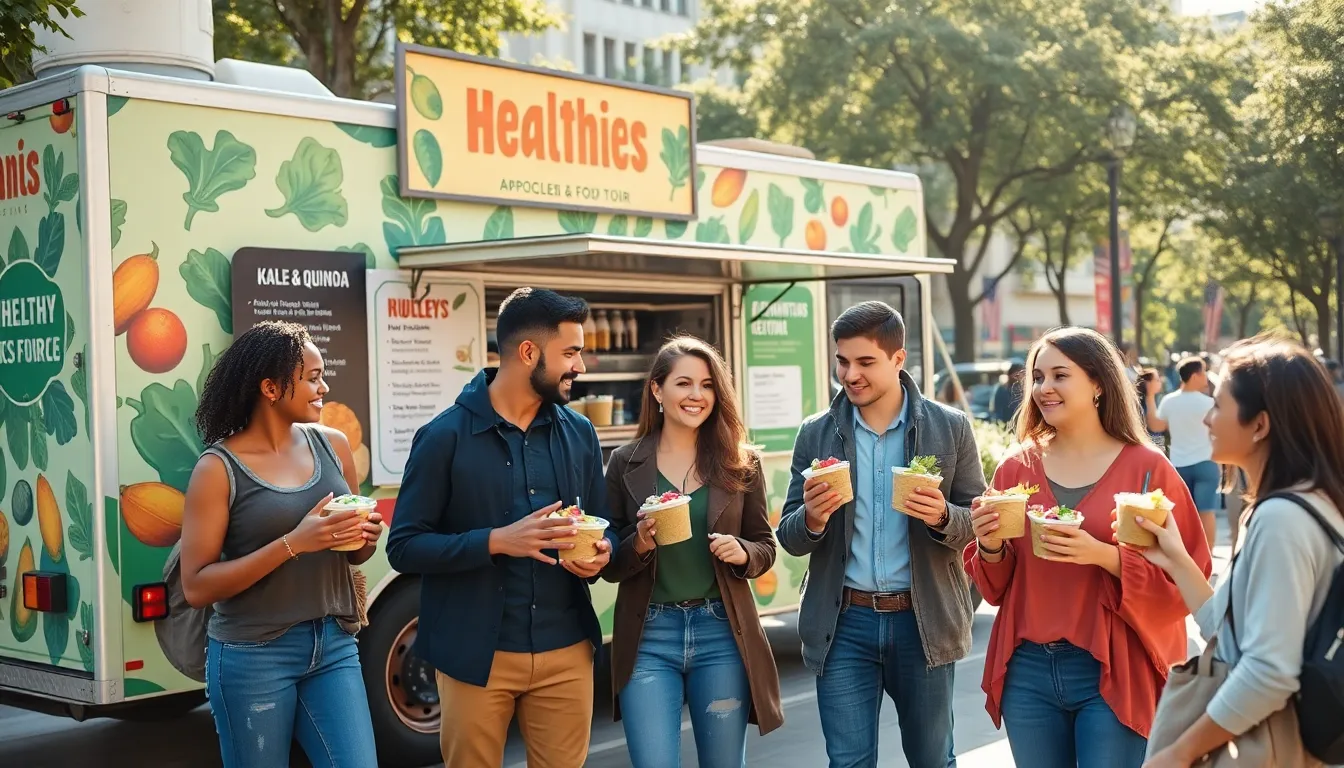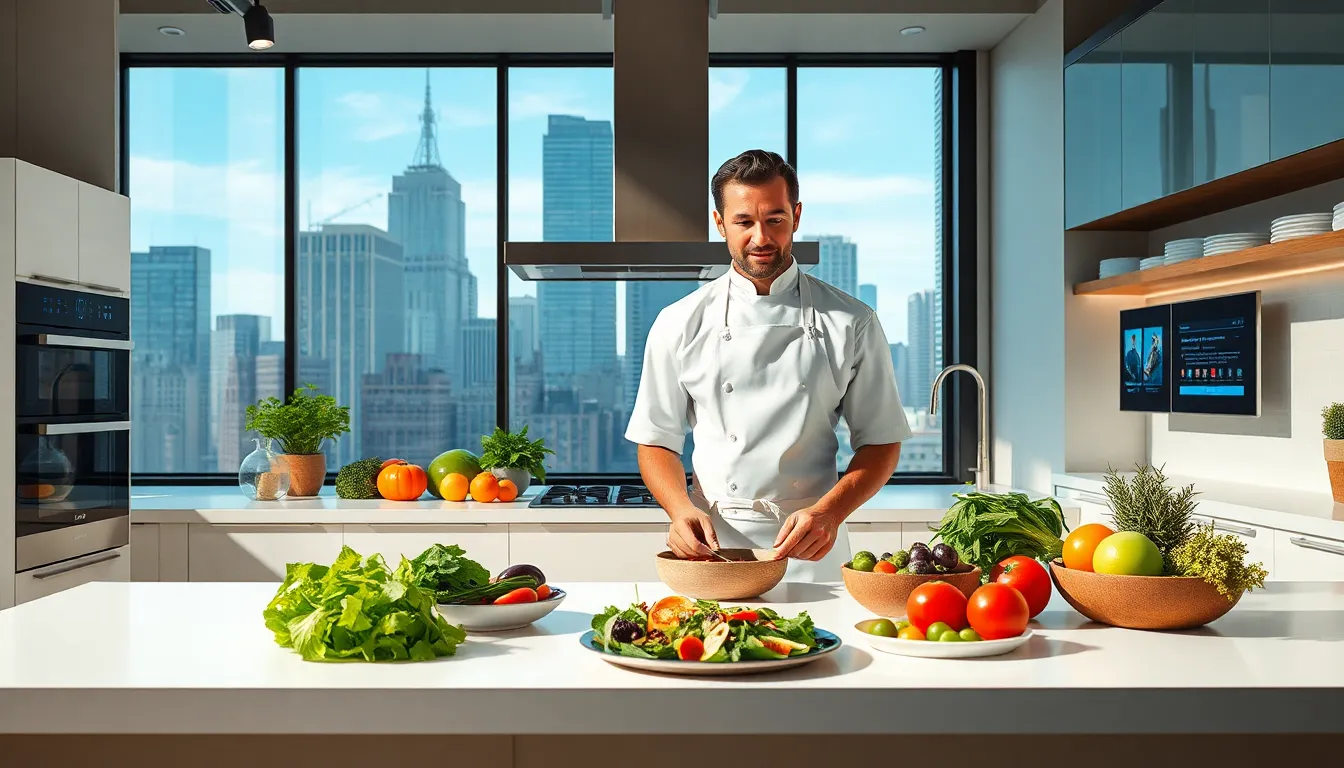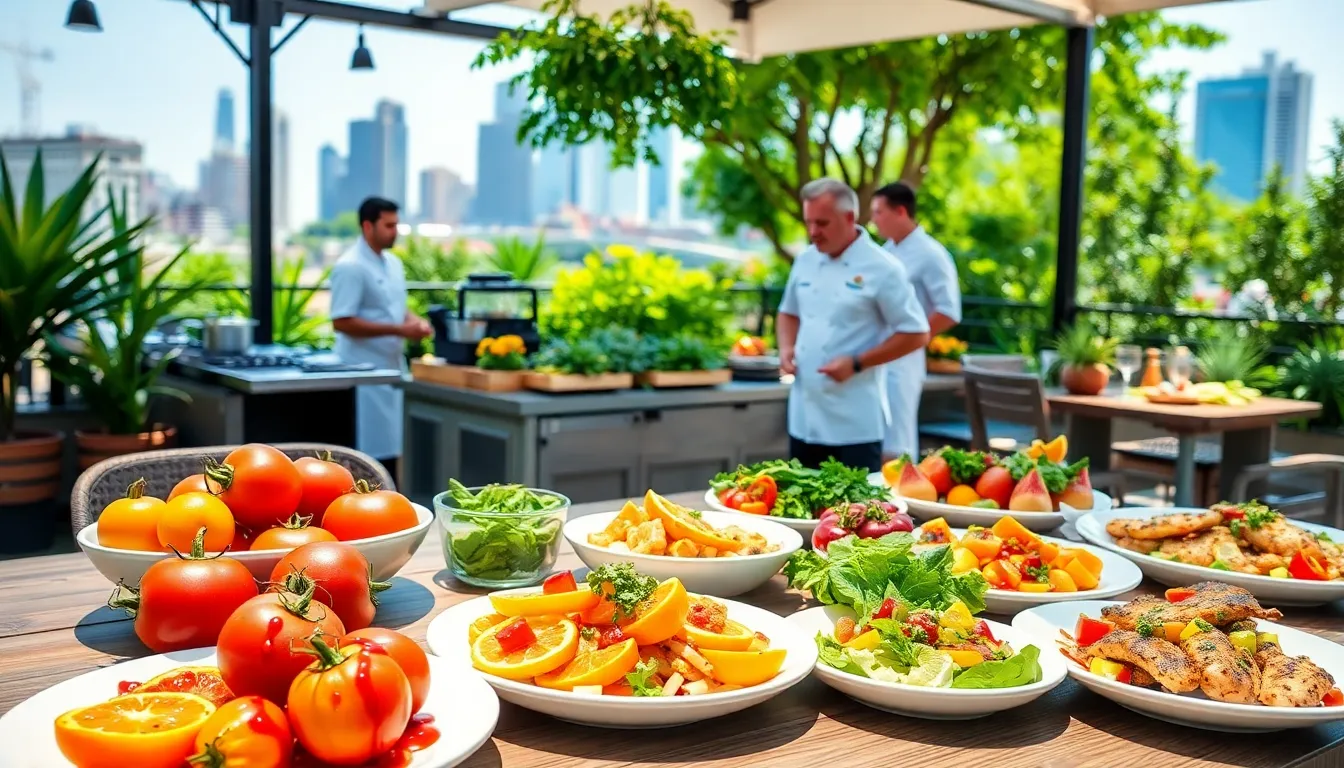Table of Contents
ToggleIn a world where food choices can be daunting, food trucks offer a refreshing glimpse of culinary adventure. From gourmet tacos to vegan donuts, these mobile kitchens cater to a variety of palates. But it’s not just about delicious flavors: understanding consumer trends is key to turning a mere food cart into a culinary superstar. So, what are the trends that can lead to a food truck’s ultimate success? Hold onto your forks, this exploration will serve up insights that are both savory and satisfying.
Understanding Consumer Preferences

Health and Wellness Trends
Consumers today are more health-conscious than ever. Gone are the days when deep-fried everything ruled the culinary landscape. Instead, many customers now crave options that are fresh, organic, and nutritious. For food trucks, this means incorporating healthy ingredients into their menus, such as kale, quinoa, and local produce. These changes not only cater to health-focused audiences but also build a reputation for quality and wholesomeness. More than just a trend, this shift leads to the customer feeling empowered in their food choices.
Sustainability and Ethical Eating
Sustainability is now part of the consumer consciousness. Many seek out food trucks that emphasize local sourcing, eco-friendly packaging, and responsible farming practices. A truck that proudly showcases its commitment to sustainability speaks volumes. By choosing ingredients sourced from nearby farms or using biodegradable containers, food trucks can appeal to the ethically minded foodie. It’s not just about the taste anymore: it’s about making responsible choices that minimize environmental impact.
Convenience and Accessibility
Let’s face it, sometimes cooking is just a tad overrated. This is where food trucks triumph. They offer delicious meals on-the-go, catering to busy lives and tight schedules. Customers love the idea of grabbing a quick bite without the hassle of reservation or waiting hours at a traditional eatery. Having a strategic positioning in bustling locations can further enhance accessibility, ensuring that these tasty options are never more than a few steps away.
Cultural Food Exploration
Food trucks are at the forefront of culinary exploration, pushing the boundaries of traditional cuisine. They often serve as a gateway to diverse cultures, introducing consumers to flavors they might not experience otherwise. Banh mi, kimchi fries, or dosa are examples of how food trucks play a vital role in promoting cultural diversity through food. Customers love the opportunity to sample authentic dishes from different cultures without traveling thousands of miles. This adventurous spirit can drive a food truck’s success, making it a highlighted stop for culinary enthusiasts.
The Role of Social Media and Marketing
Social media is the lifeblood of modern marketing strategies. A food truck that knows how to leverage platforms like Instagram or TikTok can reach a far wider audience. Stunning visuals of beautifully plated dishes and behind-the-scenes preparation can heighten interest and excitement. Engaging content helps build a connection with potential customers. After all, who can resist the allure of mouthwatering tacos glistening under the California sun? Sharing vibrant stories and customer testimonials can intrigue newcomers and keep regulars coming back for more.
Community Engagement and Local Sourcing
A food truck isn’t just about food: it’s about the community. Establishing strong ties with local residents can turn casual customers into loyal fans. Participation in local events, fairs, and farmer’s markets can help a food truck gain visibility and establish credibility. When food trucks support local initiatives or collaborate with local artisans, it’s a win-win. Sourcing ingredients from nearby farms can also relate to consumer preferences for fresh and ethical food choices. The sense of camaraderie and support boosts a brand’s reputation immensely.
Adaptability and Menu Innovation
The food industry changes faster than you can say “food truck.” Those that thrive are the ones who adapt quickly. A food truck has the flexibility to experiment with seasonal offerings, limited-time menus, or dishes inspired by global food trends. Keeping the menu fresh and exciting helps maintain customer interest. Whether it’s introducing a new plant-based option or a spicy fusion dish, innovation keeps the culinary experience vibrant. Also, being responsive to customer feedback allows food trucks to refine their menus based on what patrons crave.




